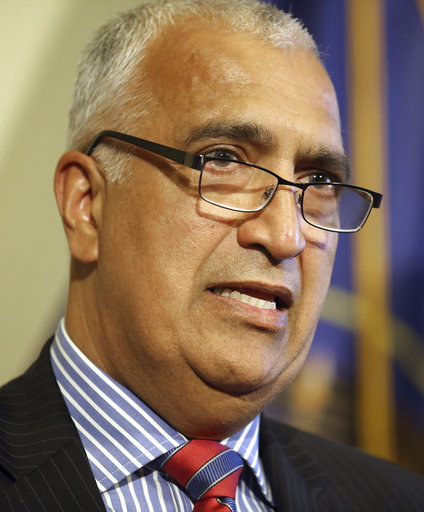Salt Lake leaders hope ‘Start by Believing’ campaign, new legislation will encourage assault victims to make voices heard
Fox News 13 POSTED 5:49 PM, APRIL 3, 2019, BY AMANDA GERRY, UPDATED AT 08:03PM, APRIL 3, 2019
SALT LAKE CITY – The Salt Lake City Mayor’s Office said more can be done to battle sexual assault and we can start by believing victims and their stories.
“One of the most common reasons victims of sexual assault do not report the crime is a fear of not being believed and being blamed for the attack,” said Jennifer Seelig, director of community empowerment at the SLC Mayor’s Office.
Salt Lake City became a “Start by Believing” city Wednesday, joining a campaign that encourages the community to support assault victims and hear their stories.
“I’m here today to let them know that I support them, law-enforcement supports them, the City of Salt Lake, the Mayor of Salt Lake City supports them, and that they’ll be believed, and we’ll help them get the services and resources they need,” said Representative Angela Romero.
A member of the Utah Council of Crime Victims also highlighted a new bill that would be another option if victims feel like their voices have been silenced.
“That house bill authorizes the attorney general’s office to take a second look at cases that have been presented to a county or district attorney and have been denied for prosecution,” said Reed Richards, Utah Council of Crime Victims.
This bill will help victims like Tabitha Bell, who says although her experience with the police was relieving, once the district attorney took her case, things started going south.
“On the declination letter, they did not even have the respect to spell my name correctly,” Bell said.
She says when she reported being raped back in November 2017, prosecutors mishandled her report and did not show her and her family the empathy they deserved.
“Why did you think she wanted it when he shoved her face in the couch,” Tabitha said her dad had asked representatives in the District Attorney’s Office. “And they were like, well maybe she wanted it that way.”
One-in-3 Utah woman will be sexually assaulted in their lifetime, and Chief Mike Brown of the Salt Lake City Police Department says since his agency has become more sensitive to these incidents, more people have become comfortable enough to come forward.
“In the old days, they used to be just, you know, I need the facts. Well, those days are gone. You don’t investigate like that anymore. You go out, and you’re understanding, and you’re sympathetic,” Brown said.
Officials say they hope this awareness and new legislation will bring criminals of assault to justice.
“I feel like with this is helping me to prove to my high school community and to my attacker that they can’t get away with punishing me for coming out,” Bell said, “and I really hope that all the other victims who have not had the strength will be able to come out as well.”
Utah was the first to announce the first Wednesday in April as “Start by Believing” Day, which is nationally recognized.


